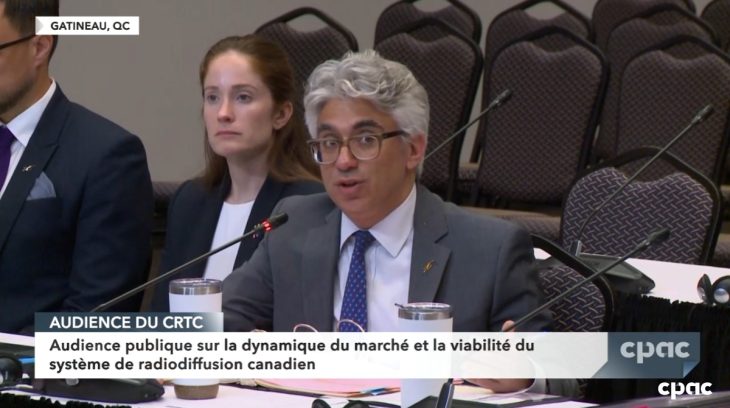
By Ahmad Hathout
Telus is asking the CRTC to ensure that all Canadian distributors get a fair shot at negotiating carriage of content held by Rogers and Bell.
“It ensures that Canadians nationwide will have competitively priced access to readily discoverable Canadian content that should be accessible to Canadians across the country at fair prices because it precludes vertically integrated [VI] companies like Rogers and Bell from keeping important content to themselves,” Daniel Stern, Telus’s associate general counsel, said Thursday.
The overarching Telus position is that service providers must be able to bundle television and internet to compete against these VIs. The two – the content and the delivery vehicle – go hand-in-hand: according to Telus, the majority of Canadians bundle internet with their television service.
“You can’t sell internet without TV,” Stern said. The company said nearly 100 per cent of Telus’s TV subscribers also subscribe to its internet service.
The telco got some wind at its back when the commission last week reaffirmed its own position that large internet service providers (ISPs) should have access to the wholesale internet regime, meaning they can piggyback off other providers’ networks.
“As we look at expanding eastward, we know that providing a whole TV product is critically important to support our internet business, and that for those customers that view TELUS TV and see the lack of available content, in particular sports, which is relevant for about 50 per cent of Canadians, we know that we’re not going to have a competitive option in that market for those customers, and it will negatively impact both our ability to sell TV as well as Internet,” added Jordan Mador, director of strategy and planning.
Bundling is a core Telus strategy. Last year it started packaging the content of global streaming services – Netflix, Disney+, and Amazon Prime Video – with its own television services. Mador said it is in the process of securing more agreements to have add-ons to the “Stream+” product.
But Mark Holloway, the company’s vice president of content, strategy and business development, said there are hiccups to getting access to the domestic streaming services.
“The only place that we continue to struggle is securing rights for OTT services from the VI’s here, both in terms of access altogether but also in terms of restrictions and conditions that these providers are trying to place on such access,” Holloway claimed, adding negotiations with foreign streamers have been more straightforward than with Canadian VI streamers.
“It shouldn’t be happening at all,” said external counsel Antoine Malek. “The commission has a very long-standing policy that programming services must be offered to all BDUs. It’s been a cornerstone of the regulatory framework for decades and it’s the way that the commission ensured that customers didn’t have to subscribe to one specific platform or service provider in order to get the content that they want.”
Malek said it takes too long to get a remedy using the undue preference framework, so the company is asking the CRTC to impose conditions of service to prevent the hogging of content to begin with.
On Wednesday, smaller BDU Eastlink said it has been difficult getting those types of “key” deals with virtual BDUs.
“That access to VBDU content for independent BDUs is critically important for competition and to drive innovation into the VBDU market,” Mador said.
On Thursday, Bell filed an application in the Ontario Superior Court accusing Telus of training and using door-to-door salespeople to pitch an unlicensed IPTV application to get customers to switch to Telus internet services.
Screenshot of Daniel Stern, Telus’s associate general counsel, on Thursday


